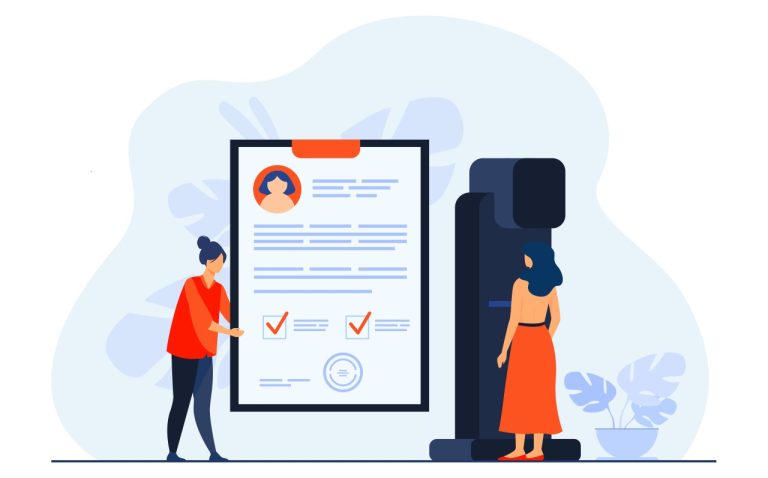Being an NVQ assessor is a highly rewarding and fulfilling career path. Due to the popularity of vocational courses, there is currently a high demand for NVQ assessors in the market. One can choose to become an NVQ assessor in almost any field or industry. However, if you are wondering about pursuing this career, it is important to thoroughly understand the roles and responsibilities of an assessor.
Roles and Responsibilities of an Assessor
The primary role of an NVQ assessor is to assess and guide learners in acquiring their National Vocational Qualification (NVQ). In doing so, they are responsible for planning the assessment, choosing the assessment methods according to the learner’s needs, providing fair assessment feedback and ensuring that the gathered evidence adheres to and complies with the guidelines provided by the awarding body. Basically, an assessor ensures that the learners are on the right path and meet all occupational standards of the vocational qualifications they aim to achieve.
Below are some of the core responsibilities of an Assessor:

1. Planning the Assessment
You may think that an assessor’s duty will be to mark and assess the evidence produced and provided by the learners, but this is just the tip of the iceberg. There are more responsibilities than you think. An assessor must carefully plan the assessment first; plan the location and time and choose the right and accurate type of assessment method that best matches the learners’ needs and preferences. The assessment plan must also be inclusive and the words used in the context must be understood by all learners.
Additionally, an assessor must keep in mind that when conducting an assessment they must adhere to all standards, regulations and ethical guidelines: never misbehave with learners, keep the process confidential, and ensure a fair and unbiased assessment process.
2. Align Assessment with the Learning Outcomes
Aligning assessment and assessment methods well with the intended learning outcomes is also a crucial responsibility of an assessor. For instance, if the goal is to teach communication skills to a learner, then testing the learner solely on academics will be inappropriate and the assessment will be of no use. However, adding a practical requirement of performing an activity such as a presentation to peers, or a meeting with clients, will confirm the competence of communication skills, and it will make the assessment valid. Therefore, an assessor must make sure that the assessment methods and procedure are in line with the learning outcomes that the learner is expected to achieve.
3. Communicate with the Learner
Another responsibility of an assessor is to make sure the learner has been involved in the process. As an assessor is the one to shape the assessment process, communicate, discuss and explain it so that the assessor and the learner remain on the same page throughout and there is no room for confusion left. For instance, you may explain the guidelines or any conditions included in the assessment procedure or how to prepare assignments and present their competence, prior to the assessment.
In addition to that, while planning the assessment, an assessor is to make sure that the learner does not have any specific needs – mental or physical – and if they do, plan accordingly.
Preparation beforehand will give the assessor an upper hand in deciding which assessment techniques to use and gather as much evidence as you need for a seamless process.
4. Provide a Constructive and Timely Assessment Feedback
After the assessment, providing feedback might be the hardest step as it must be fair, unbiased, and clear. For the betterment of learners’ progress, constructive feedback is highly crucial. Giving constructive feedback is not just about drawing attention to mistakes; it’s also about helping students get better by praising their accomplishments and pointing out areas that still need work. Constructive feedback should be specific, actionable, and linked directly to the assessment criteria, and most importantly, it must be based on the facts rather than opinion of the assessor.
Furthermore, whenever the assessment is completed, make sure to provide feedback promptly – as it helps in enhancing the credibility and reliability of the results. It also shows the assessor’s commitment to student progress and creates a responsive learning environment. When feedback is delivered promptly, it allows students to connect their performance with the learning objectives and course material. It guarantees that the assessment they encounter stays fresh in their memories, optimising the influence of the feedback.

5. Keep a Record of the Assessment Process
An assessor’s duty also includes keeping a record of its assessment planning, decision and the learner’s progress. This is crucial to keep a trail of how much learning has taken place, what progress a learner has made, and its achievements. This will help assessors meet regulatory and awarding organization requirements while also supporting learners in identifying and addressing areas for improvement.
6. Holding Standardisation Meetings
An assessor is also responsible for taking part in standardisation meetings with the Internal Quality Assurer; these meetings are crucial in making sure the assessor and IQA are on the same page and learners are getting quality assessed. Usually, standardisation sessions are organised to guarantee uniformity and impartiality in the assessment procedure, particularly in cases where several assessors are participating. In order to guarantee that all assessments are carried out in a consistent and trustworthy way, these meetings seek to harmonise assessors’ comprehension and application of assessment criteria.
Conclusion
If you are passionate about lifelong learning and want to diversify your skills, achieving an assessor qualification is the perfect way to go. As an assessor, it would be your responsibility to assess learners while assisting and guiding them, ensuring their efforts meet the set standards of the awarding body and the assessment criteria of the qualification.
If you want to become an assessor, you must exhibit occupational competence and provide evidence that you can assess in all environments (workplace and training); the ideal and most important qualification you require is a Level 3 Certificate in Assessing Vocational Achievement. For further information on how you can achieve L3 CAVA, visit this link.
-
Focus Awards Level 3 Award in Assessing Competence in the Work Environment (RQF)
Rated 5.00 out of 5£45.77 – £240.00 Select options -
Focus Awards Level 3 Award in Assessing Vocationally Related Achievement (RQF)
Rated 5.00 out of 5£45.77 – £240.00 Select options -
Focus Awards Level 3 Certificate in Assessing Vocational Achievement (RQF)
Rated 4.90 out of 5£64.17 – £340.00 Select options



